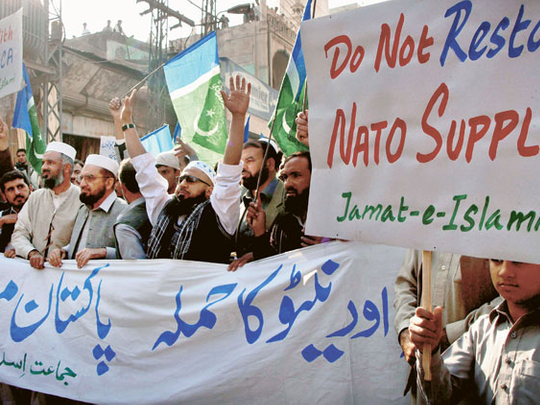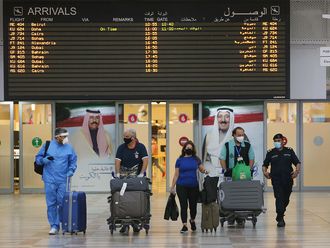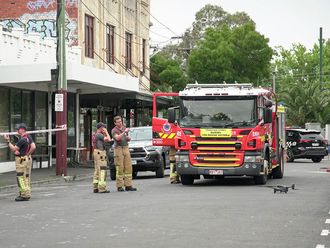
Islamabad: Pakistan's commanders in the wild Afghan border region can return fire if attacked without waiting for permission, the army chief said, a change in rules of engagement that could stoke tension after the Nato strike that killed 24 Pakistani troops on November 26.
The attack sparked fury in Pakistan and further complicated US-led efforts to ease a crisis in relations with Islamabad, still seething at a secret US raid in May which killed Al Qaida leader Osama Bin Laden, and stabilise the region before foreign combat troops leave Afghanistan in 2014.
"I do not want there to be any doubt in the minds of any commander at any level about the rules of engagement," Chief of Army Staff General Ashfaq Kiyani said in a communique after the attack.
"In case of any attack, you have complete liberty to respond forcefully using all available resources. You do not need any permission for this."
A military source explained that this amounted to a change in the rules for Pakistani forces guarding the western border against militant movements to and from Afghanistan.
"In the past, we were only guarding ourselves or reacting against militants," said the source, who requested anonymity because he is not authorised to speak to the media. "We have given our posts some more space to respond. If they are under attack, they should not wait for orders from above on whether to return fire or not."
The increase in autonomy for local commanders is likely to raise tensions in the unruly and mountainous border region, which is porous and poorly marked. Militants and tribespeople move back and forth daily.
Consequences
"There are certain inherent risks in the delegation of authority," said defence analyst and retired general Talat Masoud. "There could be unintended consequences."
Exactly what happened at the Pakistani posts along an unruly and poorly defined border is still unclear.
Pakistan said the attack was unprovoked, with officials calling it an act of blatant aggression.
US officials said Pakistani officials cleared the air strike unaware they had troops in the area.
Giving their first detailed explanation of the worst friendly-fire incident of the ten-year war, they said an Afghan-led assault force including US commandos was hunting Taliban militants when it came under fire from an encampment along the border with Pakistan, media reports said.












